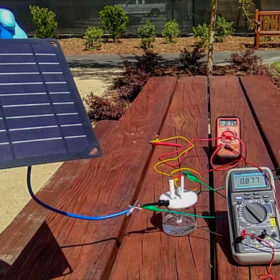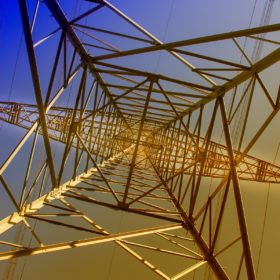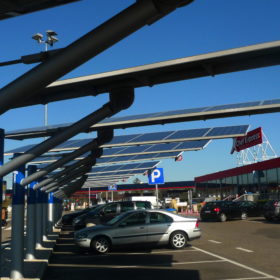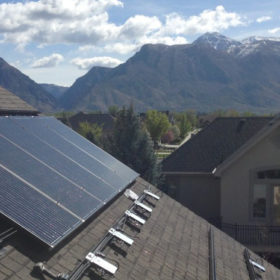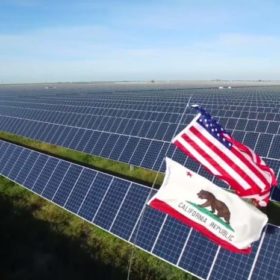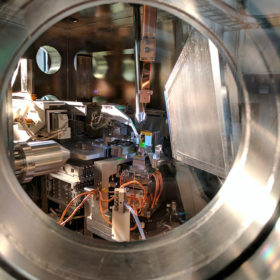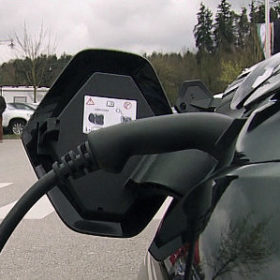Water, water everywhere, nor any drop to… split?
Researchers at Stanford University have developed a type of electrode which is highly resistant to salt corrosion, therefore allowing them to produce hydrogen using seawater. Applied at a larger scale, this development could potentially cut the cost of power-to-gas applications by greatly increasing the amount of water available.
Californian solar output met 59% of demand at one point on Saturday
On Saturday afternoon, utility-scale solar output on California’s grid peaked at 10,745 MW – its highest level since last summer. More importantly, California is wringing greater flexibility out of its imports, meaning more renewables with less curtailment.
The influences driving solar carports
pv magazine’s Charles Thurston has written about the potential of solar carports in this month’s, hot-off-the-presses edition of the magazine. As a taster, here’s a few extra points on the topic that came in too late for the print deadline.
New Mexico will be the third US state to go 100% renewable
With the passage of the Energy Transition Act in both houses of New Mexico’s legislature, the state is poised to join California and Hawaii in setting a mandate to fully decarbonize its electricity system by 2045.
Enphase is making money again
The California-based microinverter maker posted $92 million in revenue in the final quarter of last year, and more than $106 million in cash as the company reported its first positive quarterly and annual operating income figures in years. Enphase is booked out for all of this quarter and seemingly into the late spring months too.
Solar Bill of Rights introduced by California senators
The legislation would enshrine a customer’s right to generate and store electricity as well as to connect to the grid without undue burden and would provide freedom from discriminatory fees and set compensation for battery power exports.
Understanding why cesium and rubidium salt improve the yield of perovskite solar cells
The addition of either salt enables more even distribution of halide atoms within the perovskite material – key to increasing cell conversion efficiency. The explanation should speed up the process of identifying the best perovskite mixes.
America’s Green New Deal is going to happen at state, not federal level
While U.S. senators Ed Markey and Alexandria Ocasio-Cortez introduce a resolution for a clean energy package, legislation has been tabled in six states aiming to implement 80-100% clean energy by 2050 or earlier.
Canadian Solar revises up estimates while giving PG&E update
The Ontario firm has revised figures for shipments, net revenue and gross margin after seeing better-than-expected trading in the final three months of 2018.
Tesla acquires storage specialist Maxwell Technologies
The target company, which specializes in supercapacitors, will become a wholly-owned subsidiary of Elon Musk’s business.
